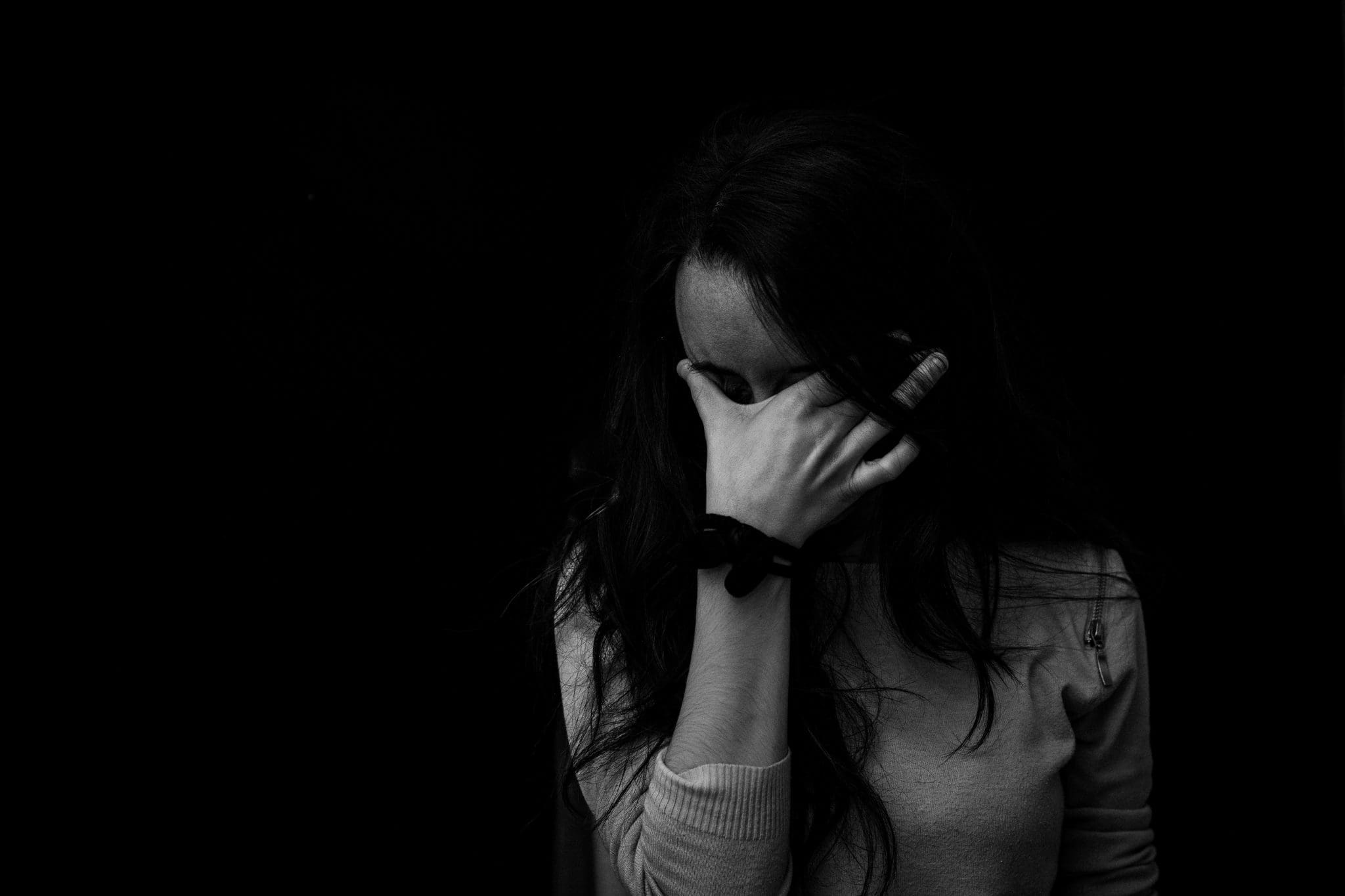Full Disclosure: Clicking on these links could mean a tiny commission for me, at no extra cost to you.
Anxiety is a common, healthy emotion that everyone experiences. For example, you may feel anxious about an upcoming exam or interview; this is normal. But if feelings of anxiety seem to be coming frequently and disproportionately to the given situation, it may be a sign of an anxiety disorder. Severe anxiety may begin to cause complications with everyday life. If you feel, or have noticed, someone close to you feels anxious often and is becoming a hindrance to daily life or performing certain tasks, it may be time to seek professional help for anxiety disorders or general mental health and wellness.

Signs It Might Be Time to Seek Professional Help
An individual’s anxiety levels can fluctuate depending on life situations and circumstances. Defining the correct time to seek help for anxiety is challenging because everyone’s experiences differ. Whether it’s time to seek help ultimately depends on how strongly anxiety impacts the individual. It could be you or someone else.
If anxiety has become so predominant in your life and you want to seek help, that’s enough reason to. Or if it’s inhibiting some other area of your life, it could be a sign that it is time. These problems differ for everyone, but here are five of the most common symptoms you might experience.
Remember, these are only common signs and indications. If you feel any of these become a problem, proper advice should always be sought from a licensed mental health service professional like those at https://www.jacksonhouserehab.com/ or a luxury drug rehab. Here are some additional signs it may be time to get professional help for your anxiety disorders.
Your Anxiety Manifests Into Physical Symptoms
The physical symptoms of anxiety vary from one person to another. However, some are more common than others, such as:
- Excessive sweating
- Stomach aches
- Headaches
- Feeling restless
- Feeling easily fatigued
- Nausea
- Lightheadedness
- Rapid heartbeat
- Shortness of breath
If your body responds to everyday situations with symptoms like those mentioned above, it might be a sign you suffer from anxiety. For example, if you break into a cold sweat when faced with a social encounter or if you feel like you’ll throw up whenever invited to a party of guests you’ve never met.
Constant Worry Impacts Your Life
Everyone worries sometimes, but it may be a problem if it overshadows your other thoughts or disrupts your daily functioning. When these anxious thoughts consume your life, cause you to overthink, or influence your decision-making ability, it might be time to consult a professional. This can be experienced in one or multiple areas of life – from your personal life to your relationships, work, friends, and so on. You may also experience the following:
- Your mind racing between different possible outcomes so much that you can’t decide between them.
- You’re so worried about how people perceive you that you find yourself incapable of holding a conversation.
- You feel like overthinking gets in the way of living a happy life.
In these cases, it would be beneficial to seek help with anxiety.
Experiencing Panic Attacks
Panic attacks are categorized as sudden episodes of intense anxiety. They may result in extreme physical and emotional reactions that don’t seem warranted by the situation. You might experience trouble breathing, a rapid heartbeat, an inability to function, and sweating. It may even feel like something is seriously wrong with your body or be mistaken for a heart attack.
Experiencing frequent panic attacks, especially if they happen during daily tasks or don’t feel manageable, may indicate an underlying anxiety disorder.
You Experience Cognitive Symptoms
Like the other signs of anxiety disorders on this list, cognitive symptoms may appear independently or overlap with other symptoms. Sometimes you might feel like they’re a result of other symptoms. These include difficulty concentrating, insomnia, forgetfulness, a blank mind, and irrational fears.
Some examples are if you can’t watch an entire movie because you feel guilty for taking a break, feel so stressed about an upcoming exam that you can’t remember any study material, or feel like your mind is blank when you need it to be clear. Such symptoms of anxiety can get in the way of living if they persist and could warrant reaching out to a mental health professional.
You Procrastinate And/Or Avoid
Procrastination and avoidance strategies can be signs of an anxiety disorder if you use them to avoid doing tasks that trigger anxiety. It’s normal sometimes to avoid things you don’t like, but excessive procrastination and avoidance might be related to the emotions you experience when performing the task you’re avoiding. If it becomes excessive enough that you’re procrastinating more than getting things done, it can stockpile into other problems and insecurities.
Where To Find Help
Anxiety disorders are medical conditions that are diagnosable and treatable by licensed professionals depending on the diagnosis and severity. A licensed mental health professional’s importance in identifying and treating anxiety disorders is critical.
Here are the main types of professionals you can consult if you need help.
- Your General Practitioner
General practitioners may be able to help with symptoms that indicate anxiety. They’ll typically conduct a physical examination to determine the source of your symptoms. They could come as side effects from medications, illnesses, hormonal imbalances, or something else. If they choose the cause isn’t physical, they may be referred to a mental health practitioner.
- A School Counselor
Learning institutions and higher education institutions usually have student wellness programs. If a teacher notices a student struggling with anxiety, they may recommend visiting the school counselor or social worker. Alternatively, students may seek help independently, which is the only option in tertiary education intuitions. The degree of help available will depend on how qualified the counselor is, and they may refer the student elsewhere if needed.
- Psychologist
Psychologists can conduct cognitive behavioral therapy or psychotherapy. This generally involves discussing your anxiety symptoms to help you manage them and identify the root. They may also prescribe medications—in conjunction with your general practitioner—to help manage symptoms. Sometimes you might be referred to a psychiatrist for a medical diagnosis.
- Psychiatrist
Psychiatrists are similar to psychologists because both deals with mental health. However, they hold medical degrees and specialize in diagnosing and treating mental illnesses. Psychiatrists can prescribe medication, offer therapy, and help treat anxiety disorders.
How To Seek Professional Help
Admitting to yourself that it’s time to seek professional help with anxiety can be challenging. Further, reaching out to a professional may appear intimidating, especially if you don’t know what to do or expect.
But if you feel that anxiety has become a problem for you, it may be necessary to take that leap. Remember that mental health professionals are trained and experienced in helping people understand and manage their emotions. And if it still feels too difficult, consider discussing your feelings with a close family member or friend who can help you find professional help.
The sooner you seek help, the more likely you will see beneficial results. You don’t need to decide what type of mental health professional is best for you. It’s alright to visit the one you have available—they’ll be able to help you find someone that can assist you.
Finally, being honest and trusting your doctor is essential to getting effective treatment. Mental health professionals are sworn to confidentiality to protect your privacy and interests, so anything you say remains between you and them.
That said, don’t feel confined to the first doctor you visit. You might visit multiple professionals before finding someone you’re comfortable with. Every mental health professional has a slightly different way of practicing, and it might take some time to find someone whose practices work for you. That’s okay.
Although anxiety is a normal and healthy emotion when it appears in moderation, severe anxiety can hinder living a healthy, happy life. Regularly feeling intense anxiety when faced with everyday situations may indicate an underlying anxiety disorder.
If your anxiety starts feeling unmanageable or starts negatively affecting your concentration, sleep, work, social interactions, relationships, and physical wellness, it may be time to seek professional help.








